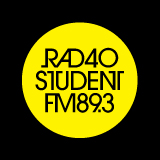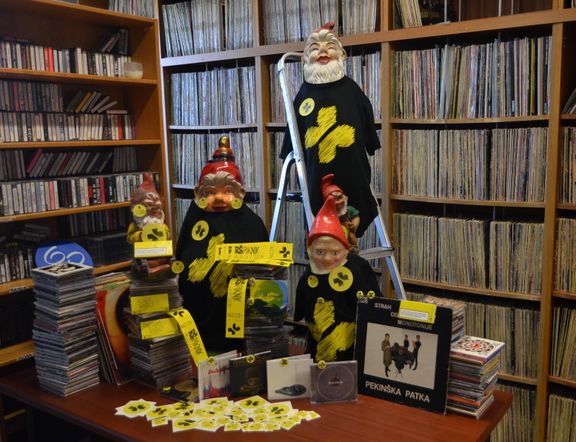Difference between revisions of "Radio Študent (RŠ)"
(March added) |
(maintained by goran kompoš) |
||
| Line 1: | Line 1: | ||
{{Article | {{Article | ||
| status = | | status = | ||
| − | | maintainer = | + | | maintainer = Goran Kompoš |
}} | }} | ||
Revision as of 10:11, 12 April 2011
Programme
Due to the variety and range of these contributors, many innovative cultural, political and social initiatives have sprung from the activities of Radio Študent. RŠ programming policy fuses community radio and public service concepts. From its earliest days the station has promoted civil society initiatives, particularly in connection with urban lifestyles, freedom of speech, independent thought, libertarian values, cultural diversity, social critique, tolerance, social solidarity and human rights. In the 1990s during the bloody war in ex-Yugoslavia RŠ broadcast a dedicated programme for refugees in Slovenia.
Every week Radio Študent prepares 45 hours of arts and cultural programming (music programmes and DJ shows are the most popular), 21 hours of information programming and 3 hours of educational programming. It is broadcast on 89.3 MHz (500 W) UKV stereo, covering Ljubljana and its surroundings (500,000 potential listeners).
RŠ collaborates closely with Mariborski radio Študent (MARŠ). Since 1998 Radio Študent programme has also been available online.
Projects
Since 2001 Radio Študent has set out to discover and encourage young and relatively unknown Slovene musical artists and bands that show originality, creativity and the potential to evolve into respected Slovene innovators – an important initiative in this area is the Radio Študent Club Marathon, an annual six-week Autumn tour by six selected bands to 20 clubs in Slovenia, which promotes young talent and introduces new genres and musical developments to the wider public as well as to the music industry. The station also offers a recording studio service for young bands.
International cooperation
RŠ collaborates with non-commercial community radio stations from Banja Luka, Belgrade, Mostar, Novi Sad, Sarajevo, Sombor, Skopje, Zrenjanin, Zurich and Basel on the Crossradio Initiative. Each week one of these stations contributes a half-hour programme which is then broadcast by all members of the network. The aim of the project is to help reduce distrust and tension between the different cultures in Southeast Europe, to encourage cultural dialogue, and to promote the plurality of media while supporting freedom of expression.
The educational mission of Radio Študent is also important; during 2004/05 Radio Študent participated in the EU-funded European Pilot Model for Practical Training for an All-Round Broadcaster, a training project for young people interested in journalism and broadcasting.




